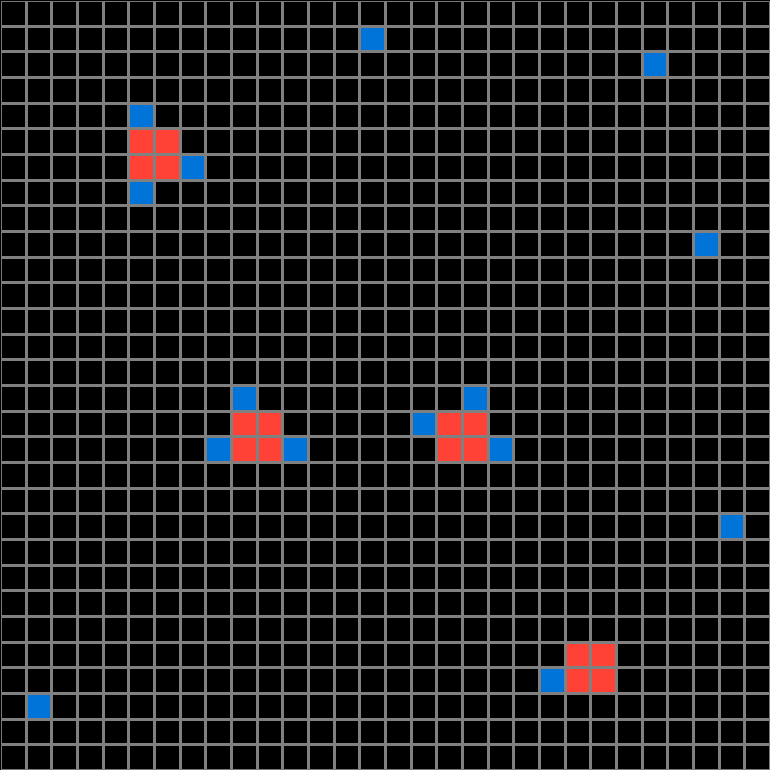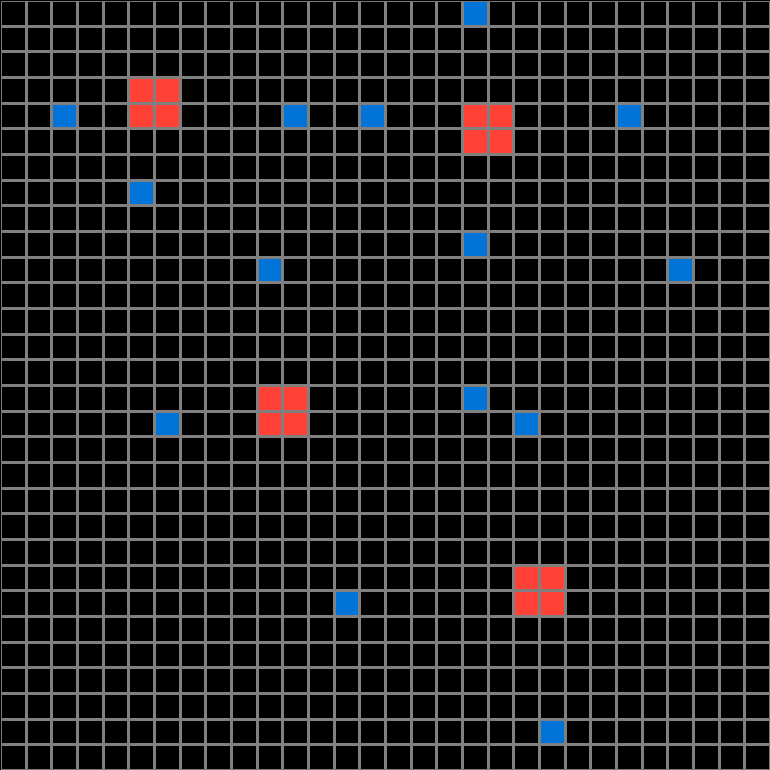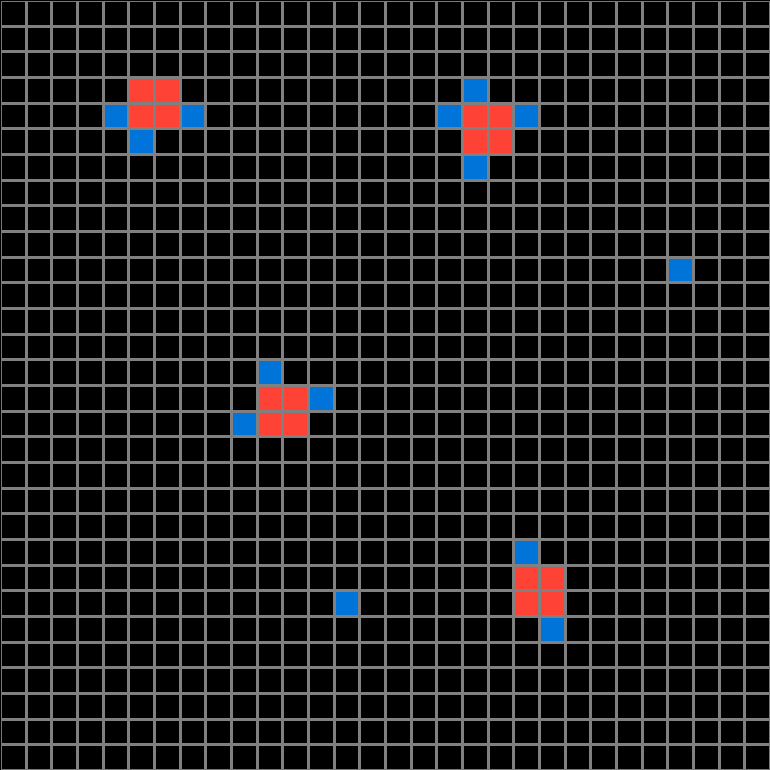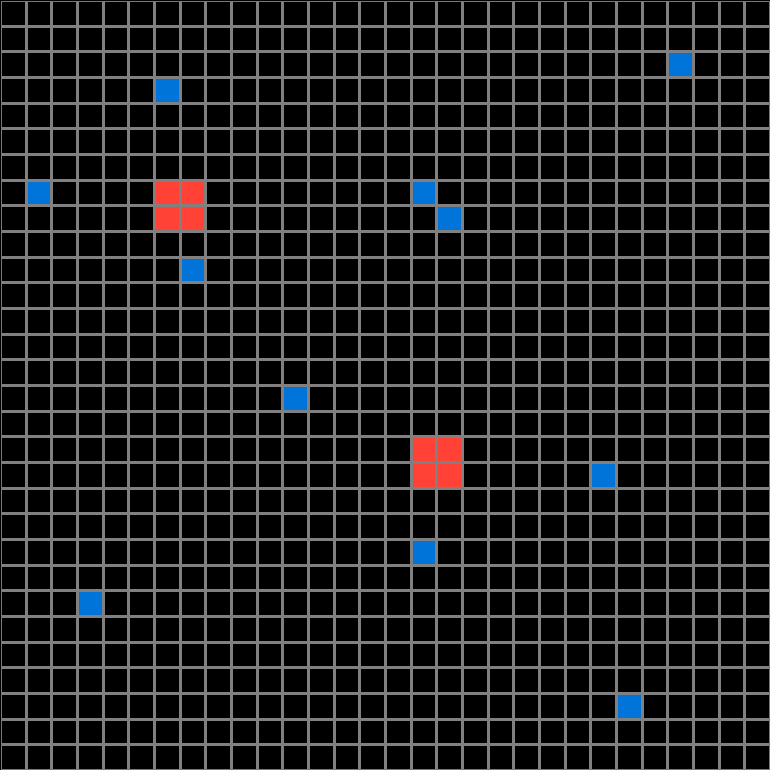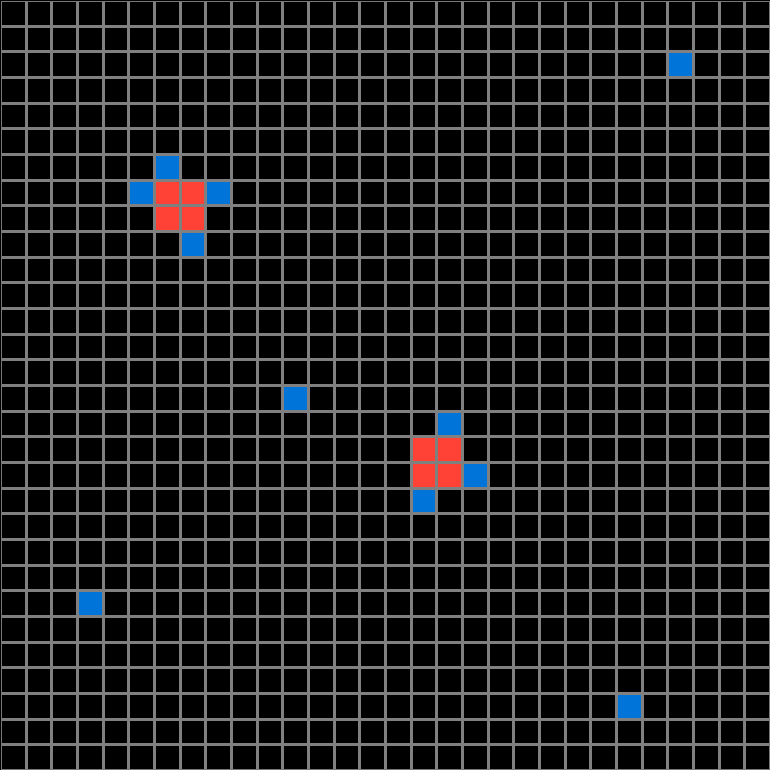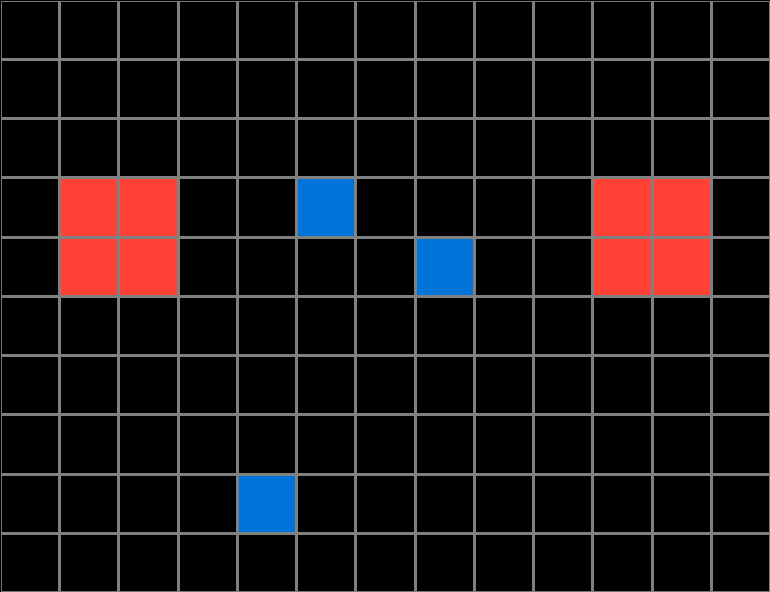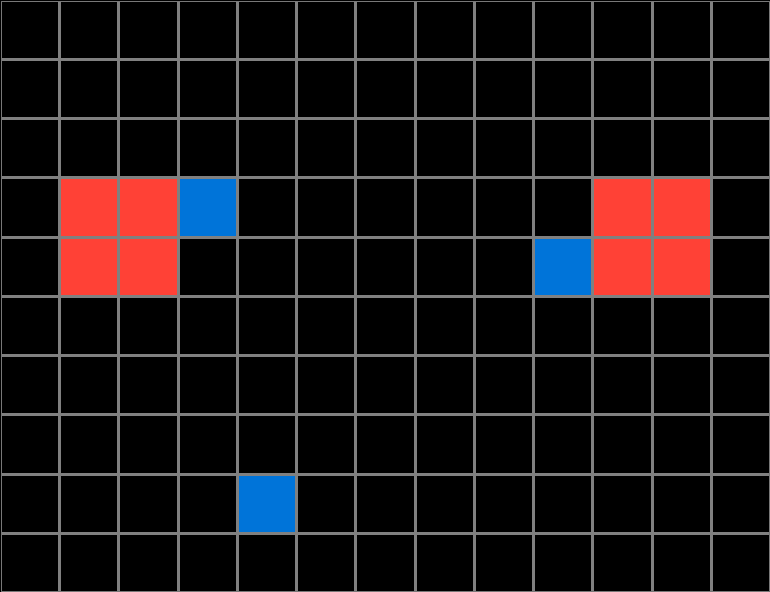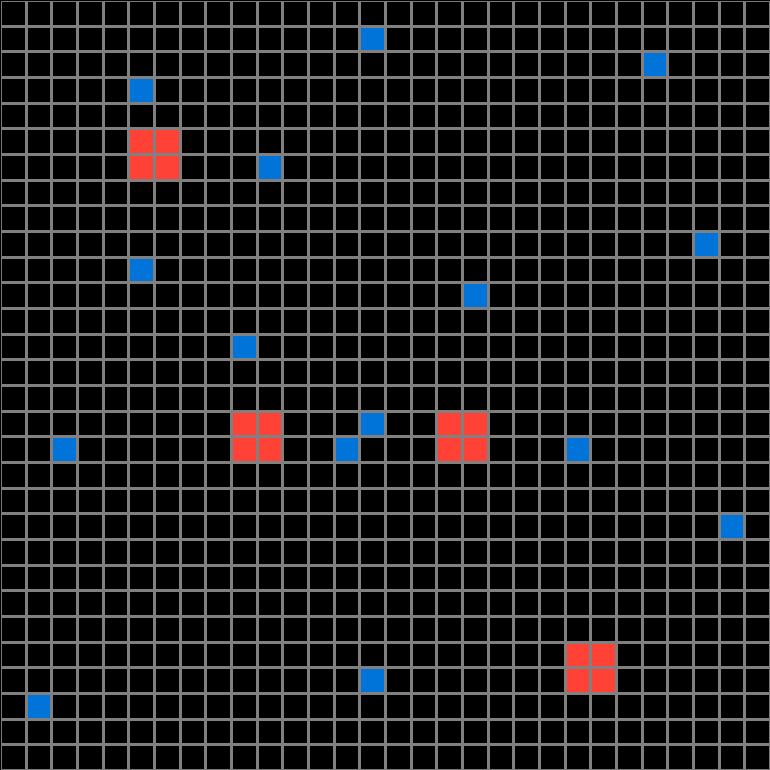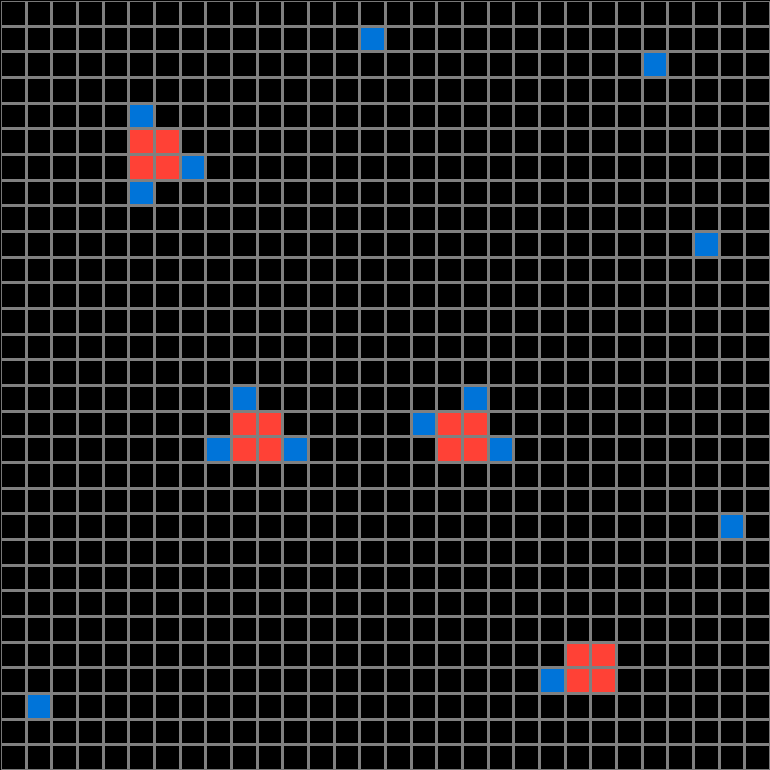Participant 1
Initial description: It seems to follow example one. The blues seemed to connect to the reds when close and when far from any red, they float on their own
Final description: This one was hard to grasp, but tried putting some blues that seemed isolated to stand on their own, with the same theory from my previous answer.
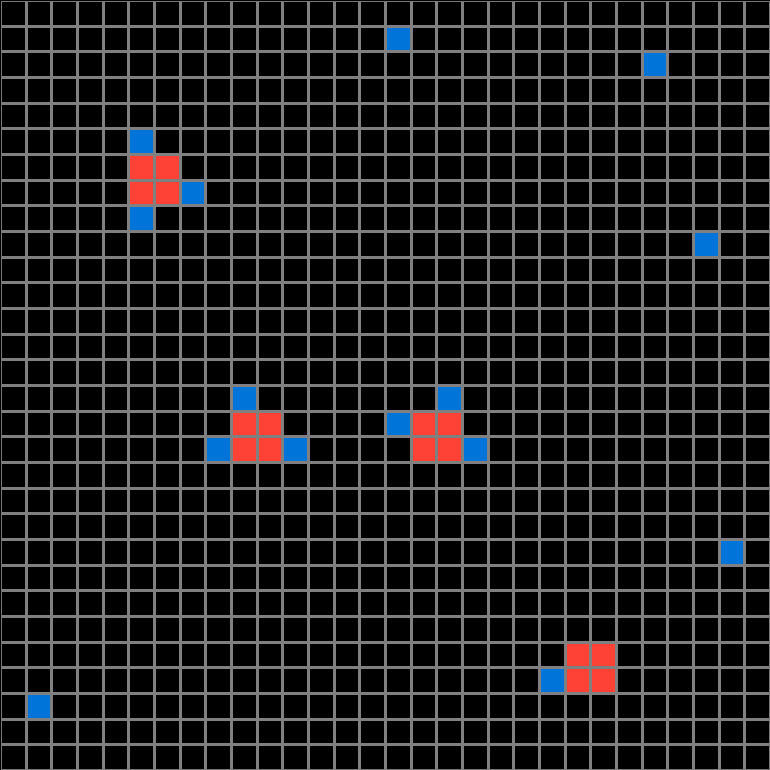
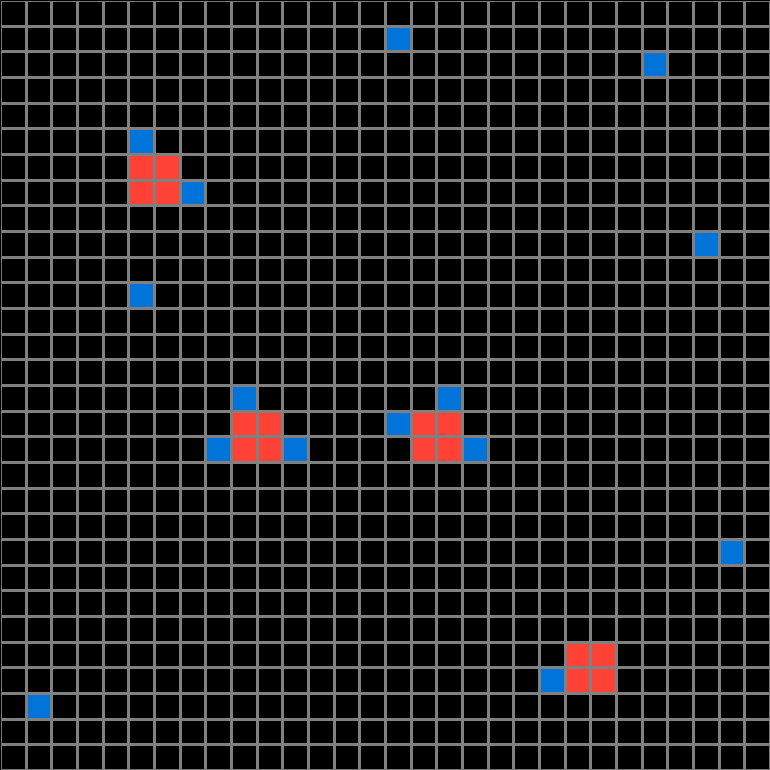
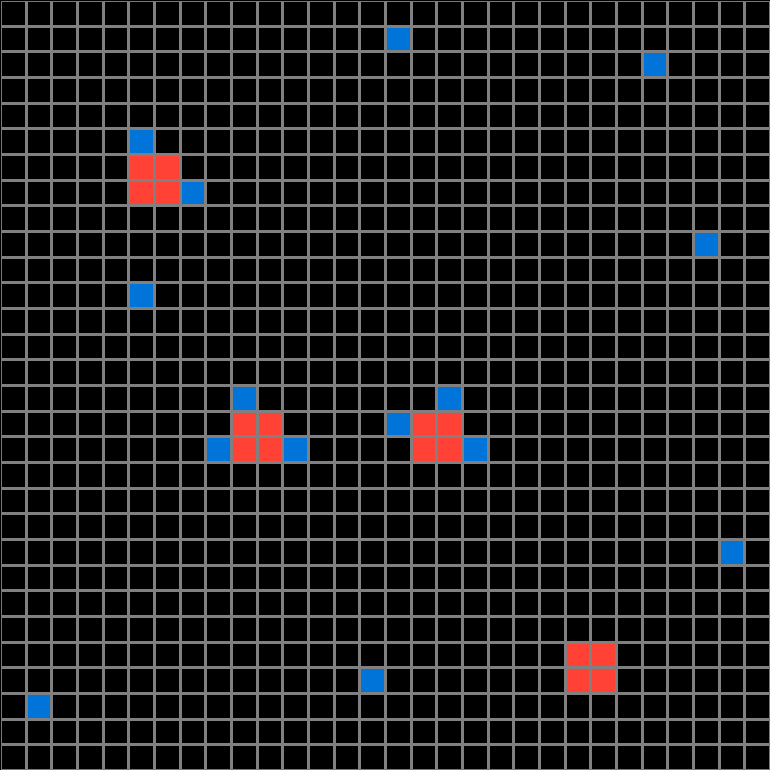
Participant 2
Initial description: I thought I was trying to make clusters out of the scrambled grid from the input example.
Final description: I genuinely thought it was supposed to make clusters.
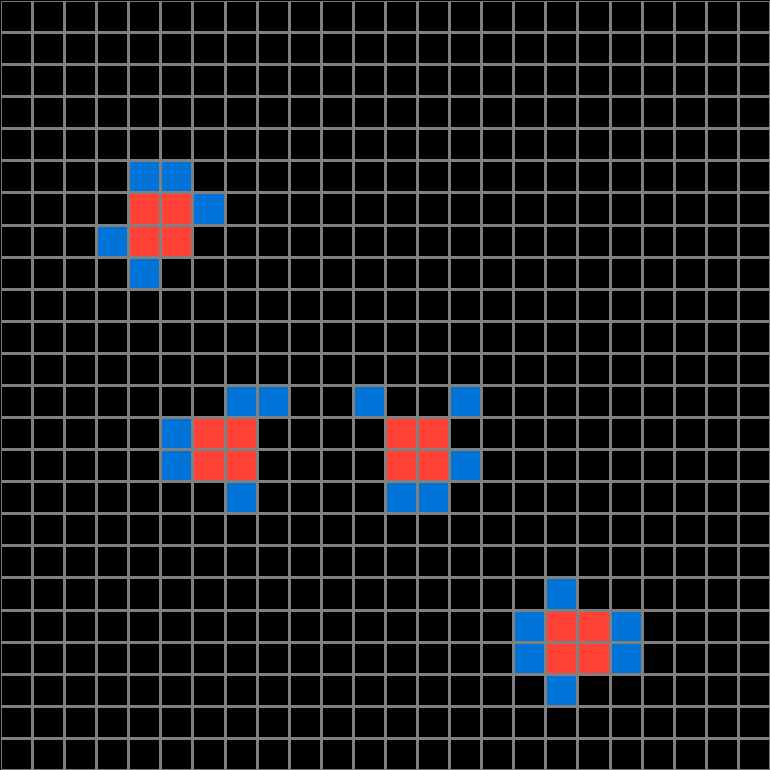
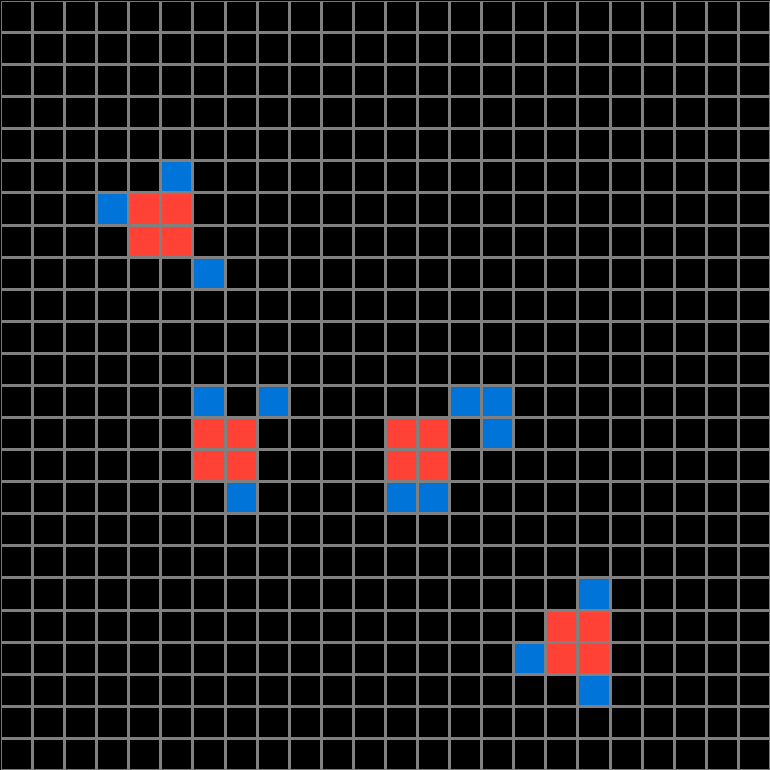
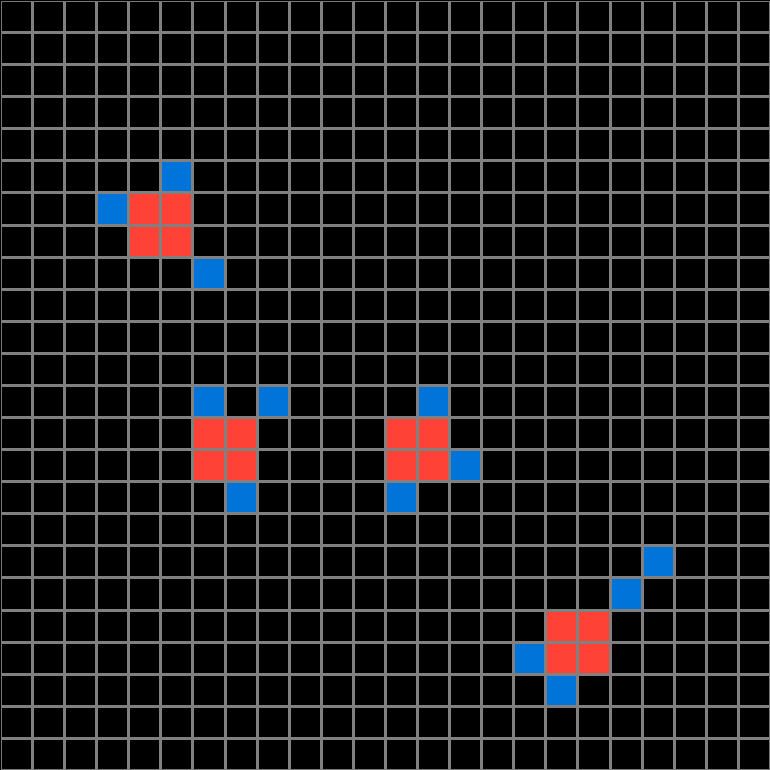
Participant 3
Initial description: When ever there was a blue square close to the larger square, it moved close to the associating corner. Lone blue squares farther away didn't move.
Final description: The close blue squares moved in to touch the red square. Outer blue squares farther away and not lining up on the same lines of the red squares didn't move.
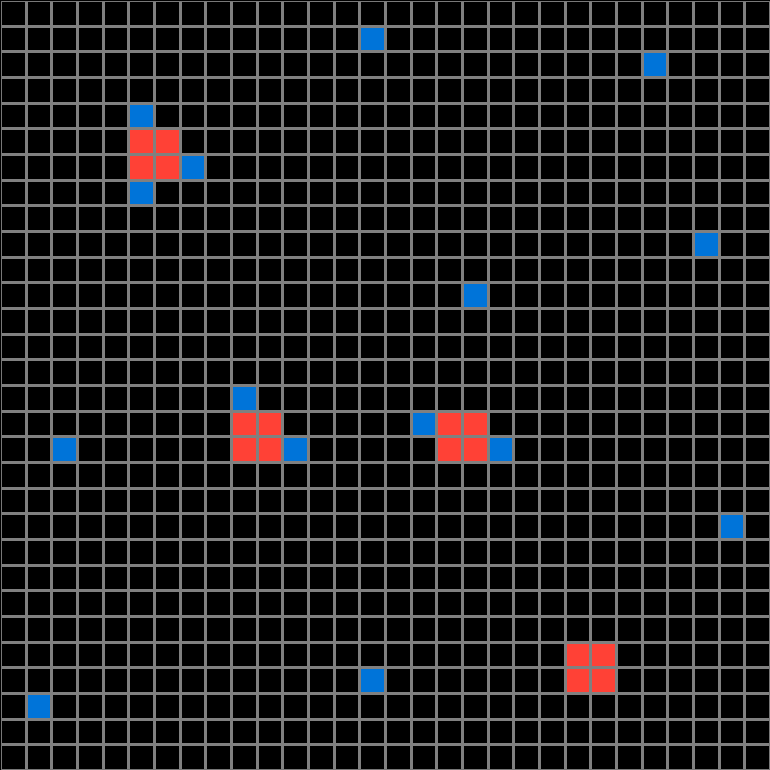
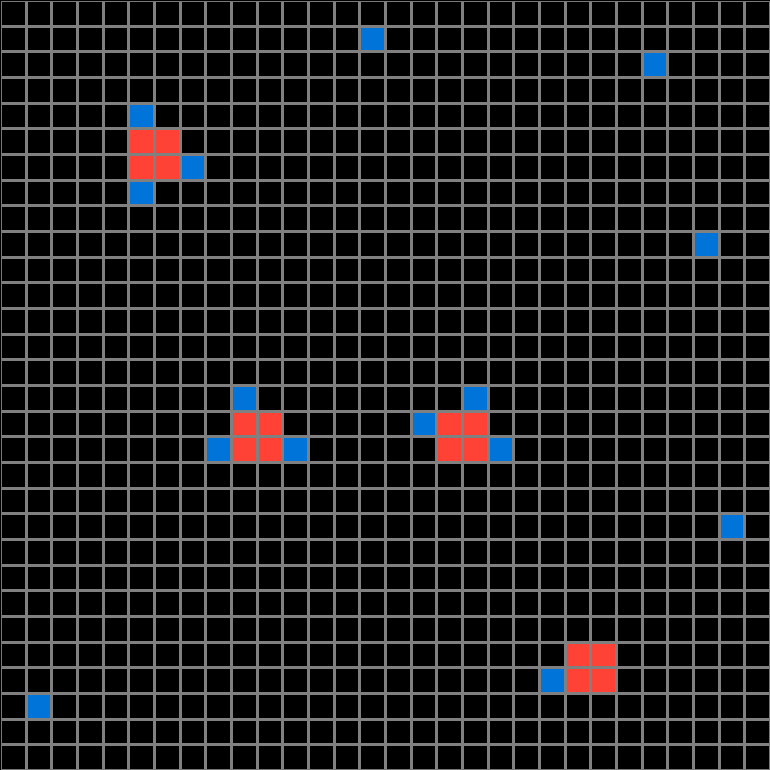
Participant 4
Initial description: Move any blue square located within a column or row of an orange square to be immediately next to the orange square closest to it while remaining in either it's original column or row.
Final description: Move any blue square located within a column or row of an orange square to be immediately next to the orange square closest to it while remaining in either it's original column or row.
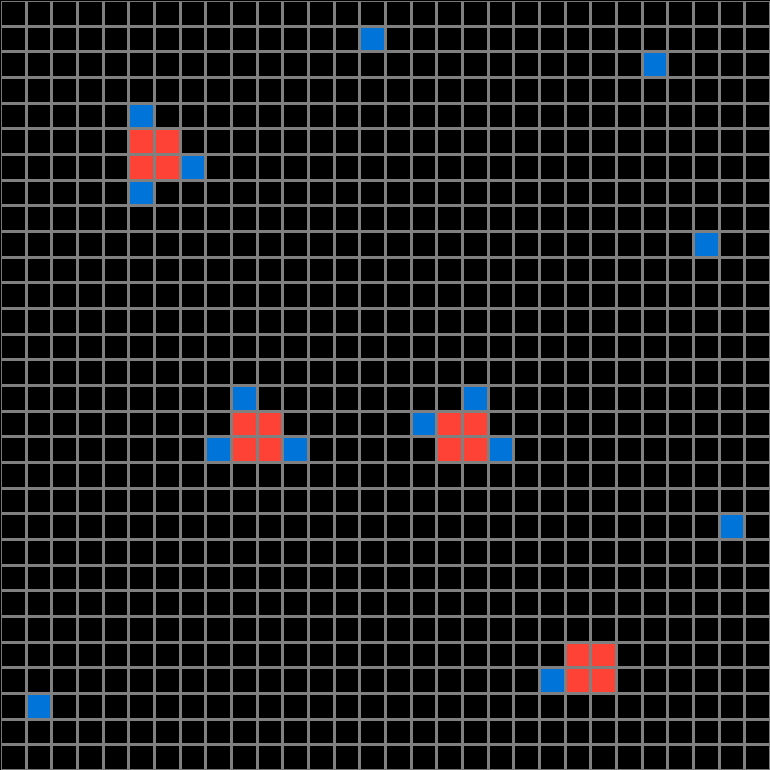
Participant 5
Initial description: The rule is if there is a blue square aligned with a red square, it will move next to the closest red square it is aligned with
Final description: The rule is if there is a blue square aligned with a red square, it will move next to the closest red square it is aligned with
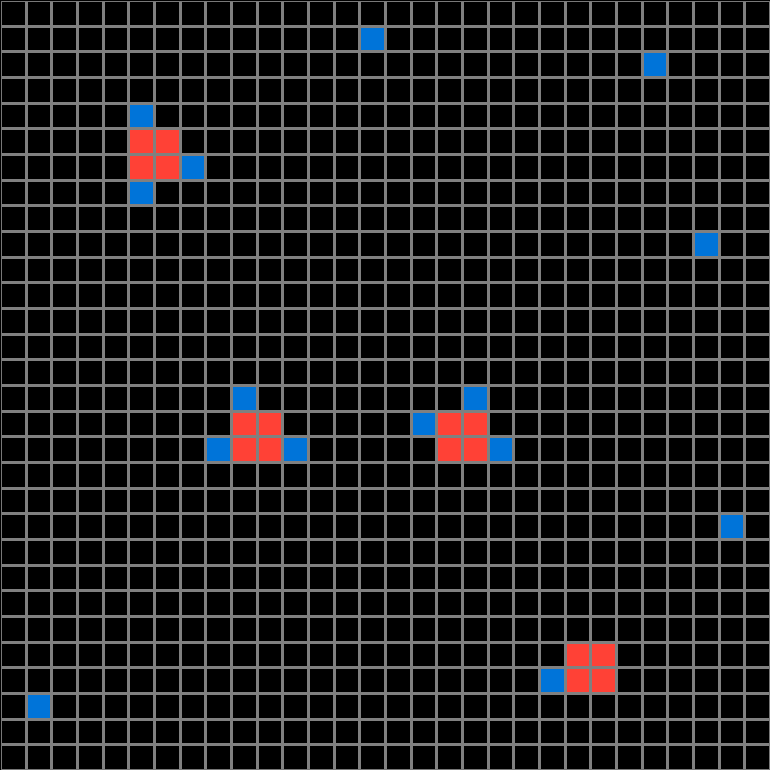
Participant 6
Initial description: Blue dots go to the closest red block if a blue dot can reach a red dot vertically or horizonally.
Final description: Blue dots go to the closest red block if a blue dot can reach a red dot vertically or horizonally.
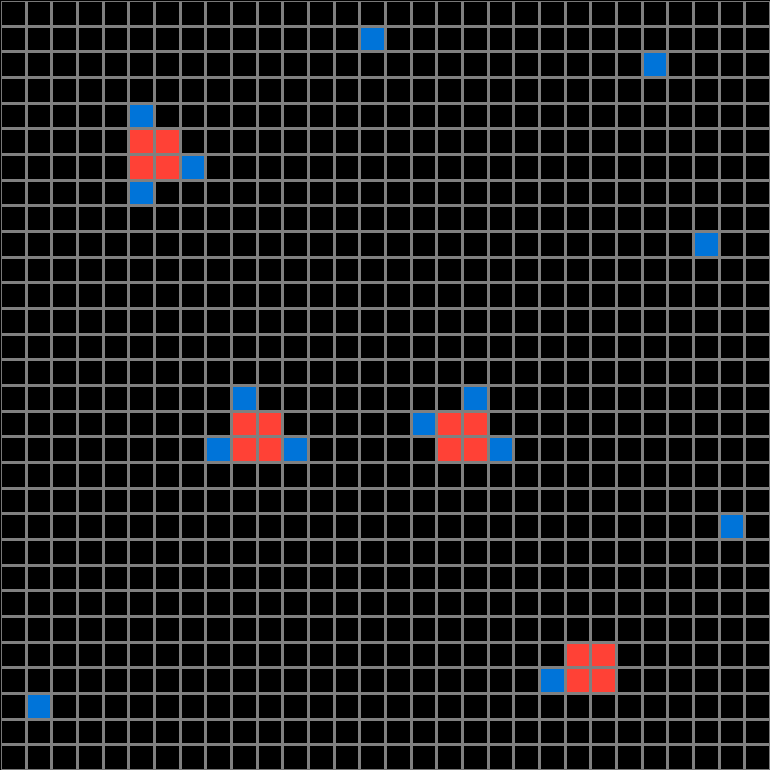
Participant 7
Initial description: For all blue blocks that have a direct line to a red square, bring it up flush to whichever red box is closest. If it does not have a direct line, leave the blue box where it is.
Final description: For all blue blocks that have a direct line to a red square, bring it up flush to whichever red box is closest. If it does not have a direct line, leave the blue box where it is.
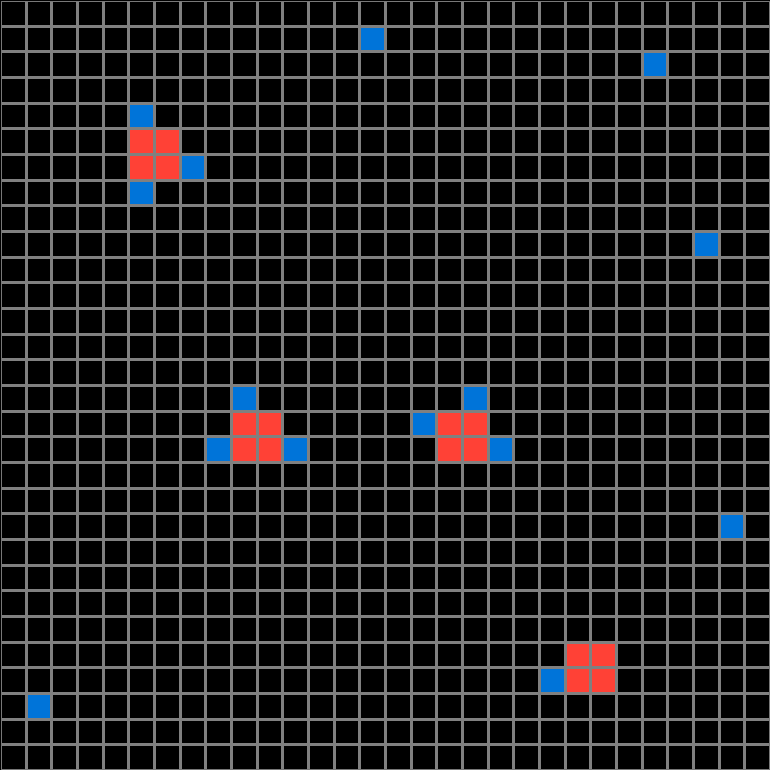
Participant 8
Initial description: Red squares were attracting the blue dots close to them if they were on the same path.
Final description: Red squares were attracting the blue dots close to them if they were on the same path.
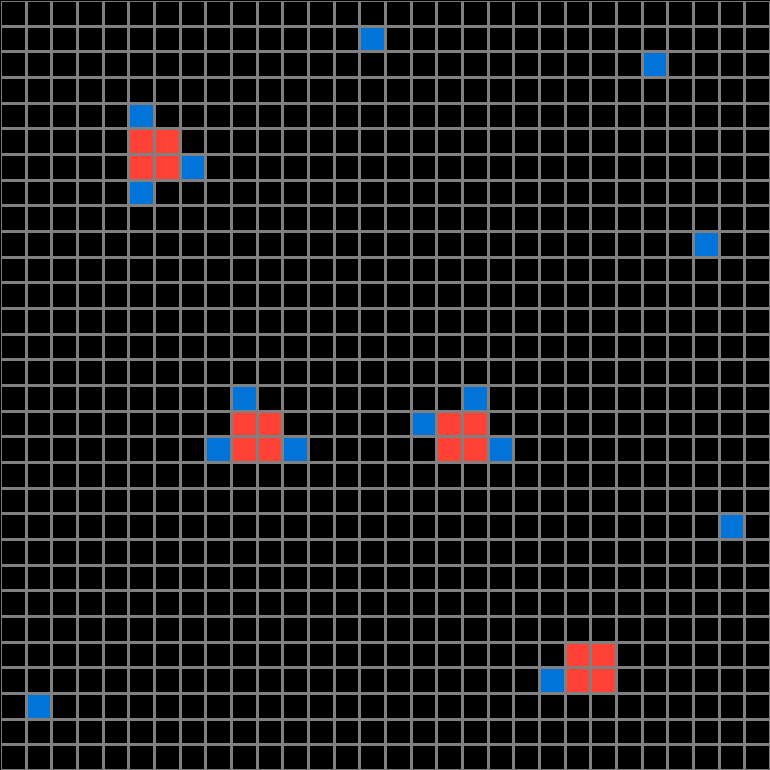
Participant 9
Initial description: Create a simple pattern by rearranging the red and blue squares.
Final description: Create a pattern by rearranging the colored squares.
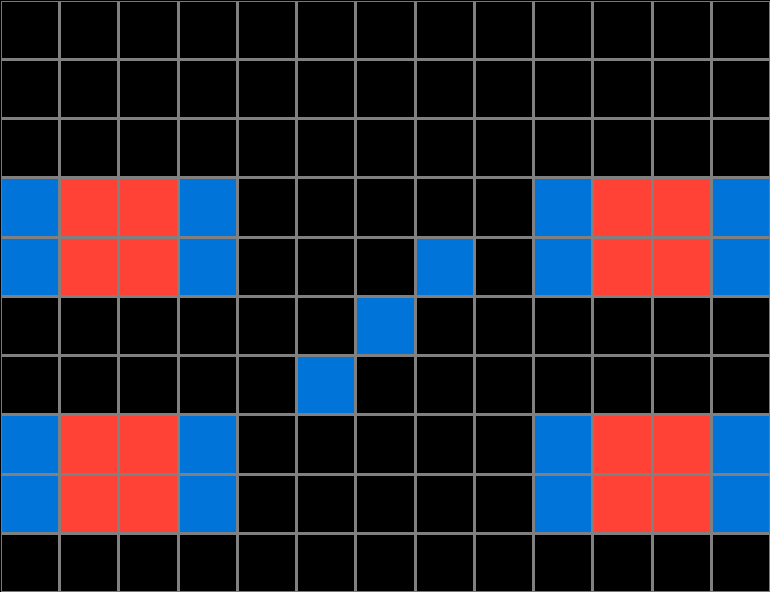
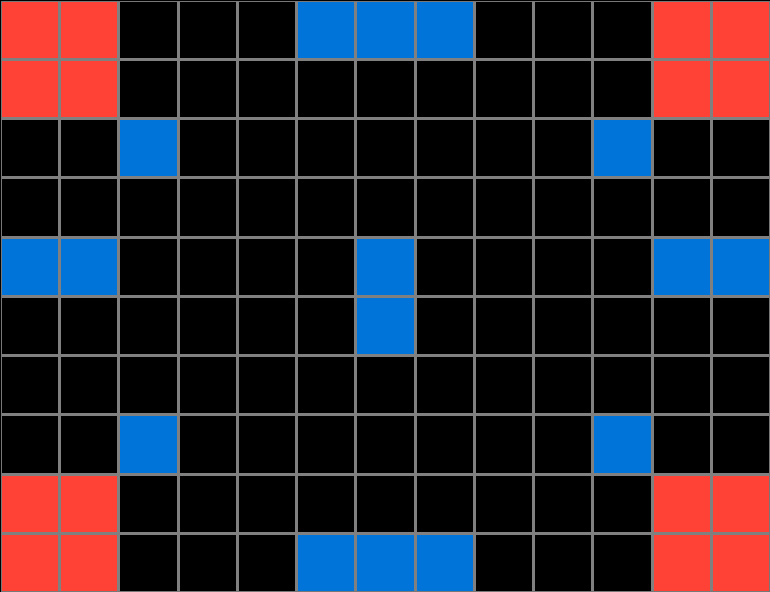
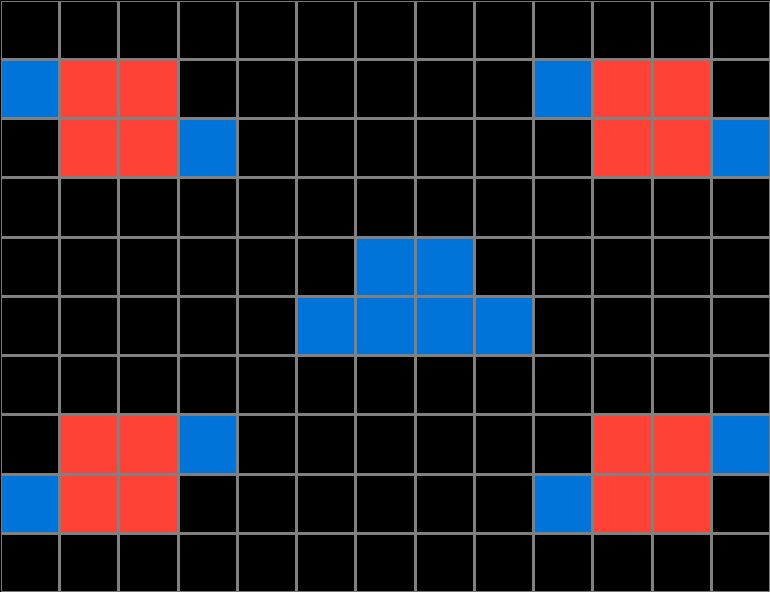
Participant 10
Initial description: If it's possible to group them on the red ones, then group them on the red ones.
Final description: If it's possible to group them on the red ones, then group them on the red ones.
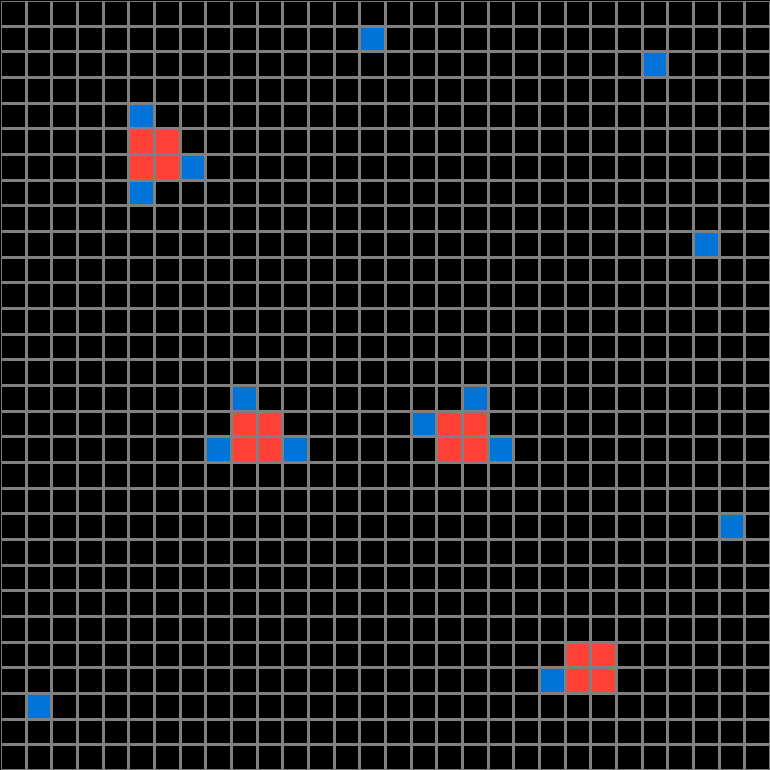
Participant 11
Initial description: the blue color corresponding to lite color attract to nearest place
Final description: the blue color corresponding to lite color attract to nearest place
